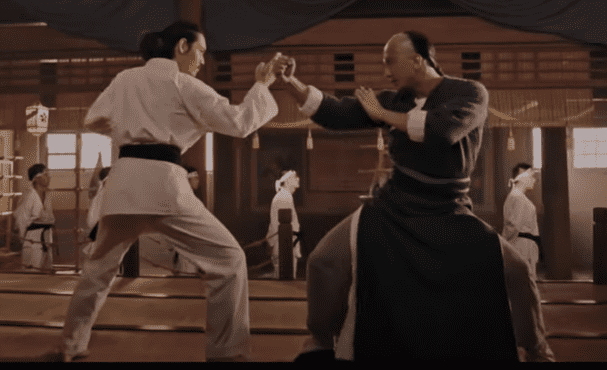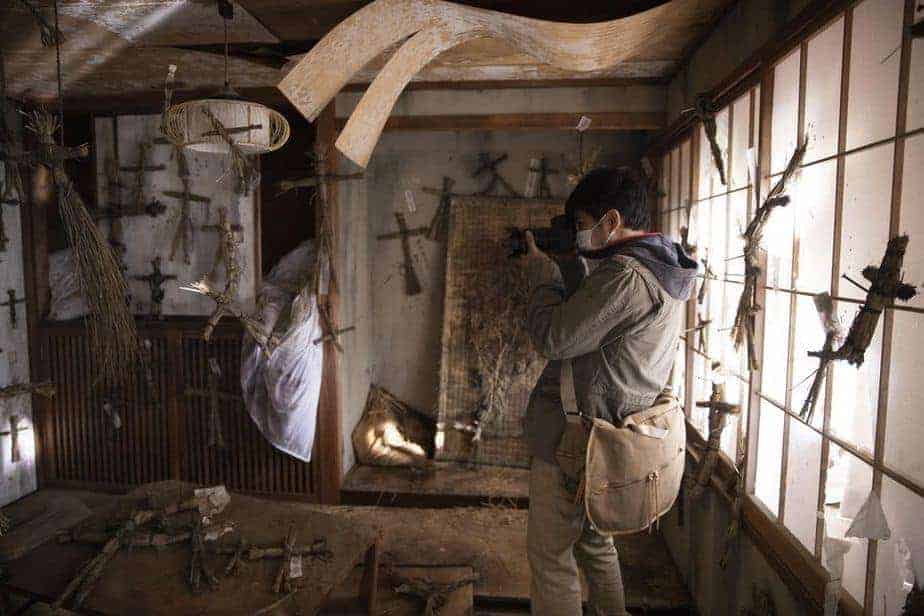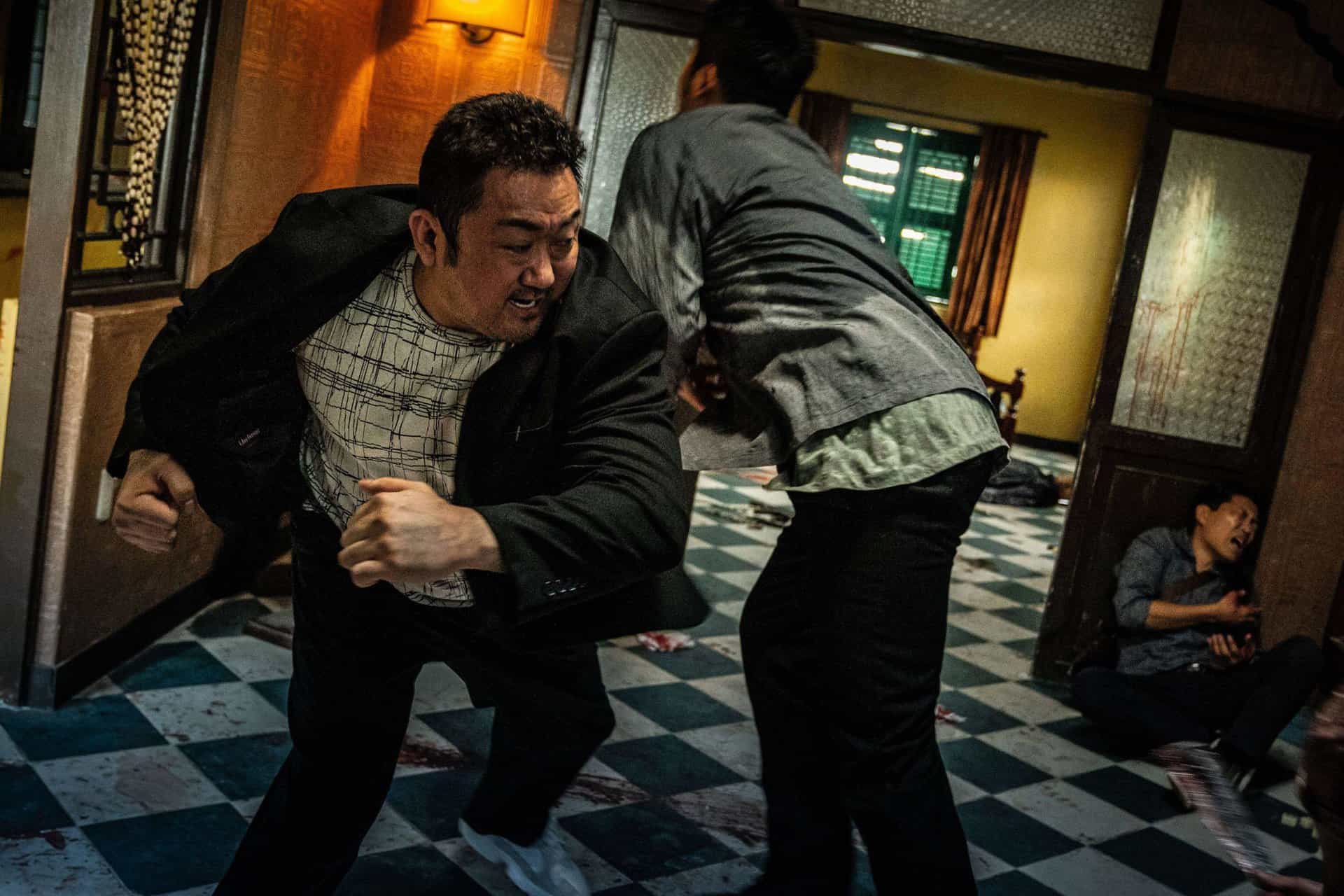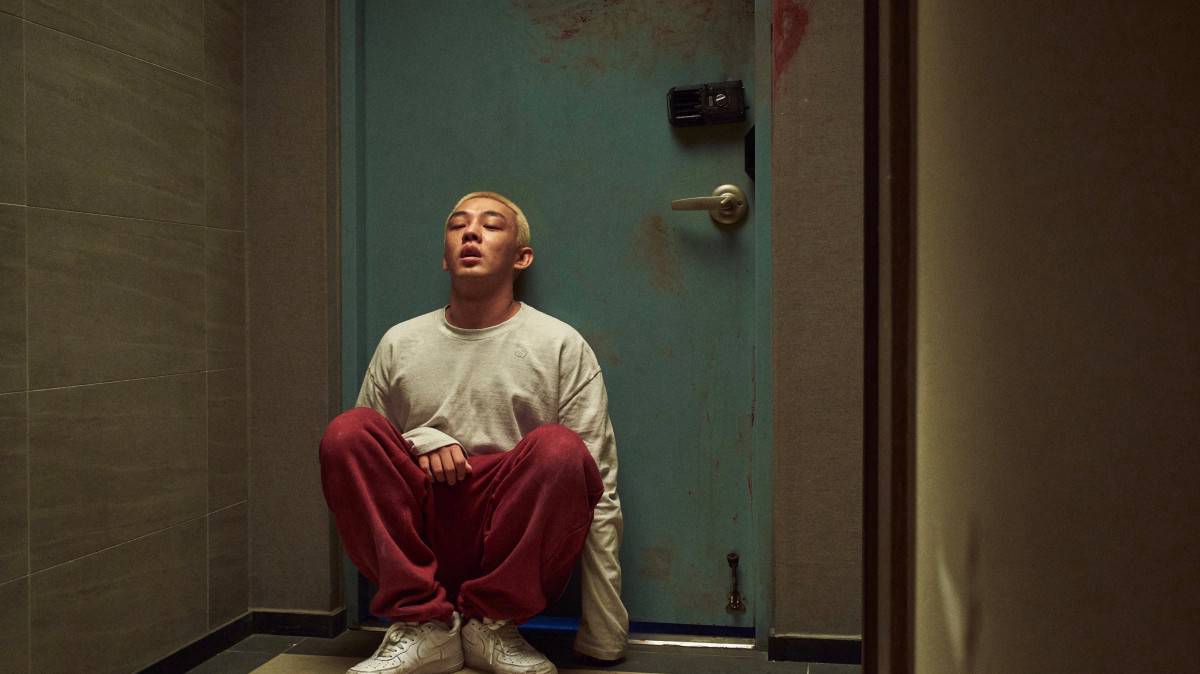A joke that comes from truth is that one of the reasons for the popularity of Kung Fu movies on home cinema formats is the option to fast forward all the talky bits. With WellGoUSA bringing “Grandmaster of Kung Fu” to Blu ray this month comes an opportunity to watch a feature that tries to rectify that!
With the retirement of the current president of the Wu Shu association, a challenge is offered. Whoever is victorious at the end will be the new Chairman. The aggressive Zhao sees off all comers until the arrival of Huo Yangjia (Dennis To). Zhao is almost beaten but takes advantage of his opponent to obtain a tainted victory. At the same time, the Japanese gain permission to open a martial arts school in Tianjin. Bitterly opposed to this, the heads of the martial arts schools go to an invitation where they are confronted by the associates of Colonel Takeda (Naomen Eerdeni) who state Japanese Aikido is superior to Chinese Boxing. After several masters are beaten, Zhao takes up the challenge only to be bested. As Huo Yangjia arrives, he implores him to take on the Japanese competitor. Emerging the winner, Huo Yangjia is drawn into the conflict which only escalates as the Japanese occupation takes over Tianjin. Ultimately it will come down to a final battle between Huo and Takeda to decide the future of martial arts.
Watching “The Grandmaster of Kung Fu” is to experience a strong sense of déjà vu. Whilst we often see recycling of images and sequences in cinema, this production comes across as a xerox copy of martial arts cinemas finest. Remember that “Sick men of Asia” sequence in “Fist of Fury”? Well, a variation crops up here. The defeated Zhao's demand that Huo battles the Japanese master is reminiscent of a similar scene in “Ip Man 2” – just transpose a Japanese fighter for a western one, courtesy of kung fu where the combatants duel without appearing to do so. Check that off the list and so on. Now there is nothing wrong with imitation if done well and for the most part the action sequences are well done, clearly shot and framed. There is some minimal wire enhancement at play as well which never distracts from what we are seeing. The problem is that it does become over familiar as we've seen these scenes before. It is further hindered by the budget constraints. The entire martial arts community of Tianjin appears to resemble about 20 people with apparently just the one student amongst them. So when Takeda remarks about the failing of the Chinese martial arts community you could argue he has a point. Then again, he appears to be occupying Tianjin with about 16 men so it could go both ways. This is not to knock the piece due to its financial limitations, more that it exposes itself in copying sequences of features that had bigger budgets and production values.
Over the past couple of decades, there has been a gradual repositioning of classic martial arts heroes as patriotic warriors fighting against oppressors. After what seemed an endless series of Ip Man films (some also featuring Dennis To), it appears now to be the turn of Huo Yuanjia. If Dennis To struggles to bring the character to life emotionally then it is largely down to the script not giving him anything to really work with. We are presented with the classic martial arts hero. Virtuous, noble but also rather dull. Martial arts is his life and family is pretty left behind until the plot demands otherwise. His wife is presented as a distraction from his obligations to the martial world. A stereotypical role that takes us back about 50 years. It leaves us with nothing to engage with on screen, leaving the viewer as a passive observer. The plot again is a distillation of numerous previous features. In fact disregard all the surroundings, this is a narrative purely about martial arts. The opening act is to find a new chairman of the Wushu association. The middle arc is around the Japanese setting up a martial arts school. The final one the inevitable showdown and ultimate superiority of Chinese Kung Fu. With a running time of only 74 minutes, there is no time for any nuance or character development.
What does intrigue is the reference to the Japanese bringing western influence to China. The repackaging of the classic martial arts heroes has been a part of a patriotic movement that makes Reagan-era America look positively liberal. The Japanese occupation is fertile territory to be mined and here is no exception. All the Japanese are irredeemably bad. Even Takeda the more considered character has no scruples about his intentions. Martial art is therefore a battle ground of philosophy. Zhao's aggressiveness and Takeda's need to win are juxtaposed with Huo's believe in defense as a form of attack. It's not just about victory, it's the ideology in conflict too. The western influence lines are what adds a layer of interest even though nothing comes of it. The Japanese are representative of western villainy too. We just never see it on screen. These are throwaway comments but act as a reminder of the politics at play in the modern day.
With a reduced running time that is barely about feature length, “Grandmaster of Kung Fu” doesn't stick around too long to get boring. As a B level production, it does exactly what it sets out to do and does it serviceably. If you are in the mood for some Kung Fu, it will certainly pass the time nicely. If you are looking for something original, then perhaps would be wisest to look elsewhere. For when you create a feature that imitates what has gone before then you lack an identity of your own.

















